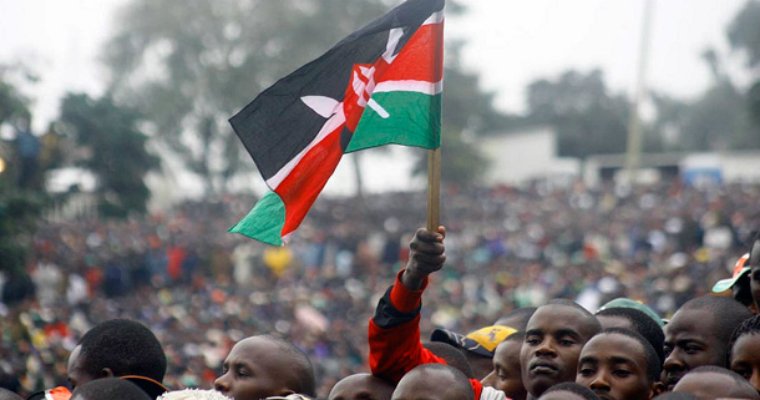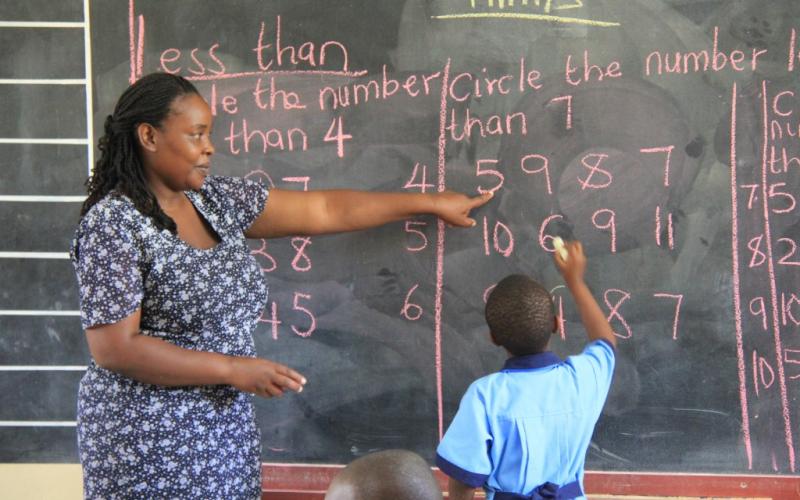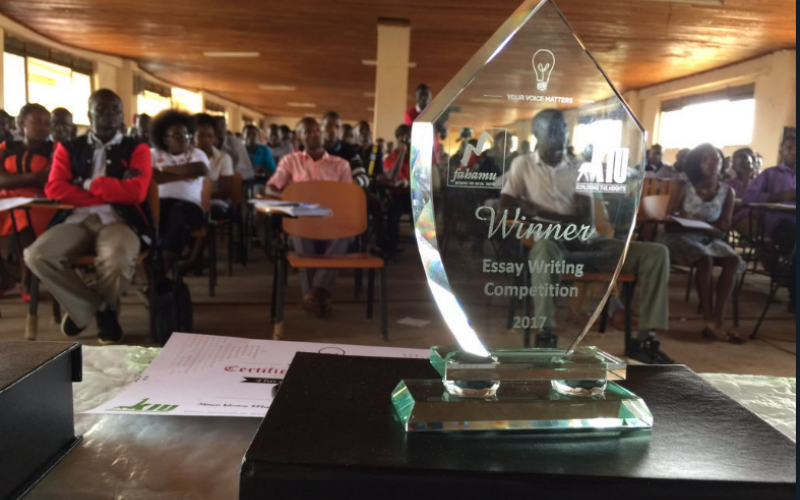72 Regional & International Civil Society organizations from 22 countries raise collective condemnation on harassment of CSOs in Kenya.
Nairobi/17th August 2018: We, the undersigned civil society organizations, working to advance human rights of all people in different countries categorically condemn the recent intimidation, threats and illegal attempts by the Non-Governmental Organizations (NGOs) Co-ordination Board to de- register and systematically bankrupt targeted Kenyan civil society organizations and their respective leadership.
We particularly condemn the Board’s letter of 14 August 2017, de-registering the Kenya Human Rights Commission (KHRC) and ordering the Central Bank of Kenya to freeze all its accounts, as well as the letter of 15 August 2017, to the Read More
Mary A. Mosha
Aug 17, 2017
Tanzania’s famous founding president Julius Nyerere was a teacher. But despite the government’s commitment to education in its development agenda, many young people shun the teaching profession. Salaries are low, classes big and teaching has little prestige among the professions.
The concept of education
Education as concept can be used to convey two different though complementary meanings. In one sense it is used to refer to the extent, measure or level of cumulative attainment by an individual of a distinctive quality of information, knowledge and/or understanding that places the individual above the average person. In another sense, education is seen as a dynamic, on-going process Read More
George William Nasinyama and Medard Twinamatsiko
Aug 17, 2017
Like many young people across Africa, Ugandan youth face the challenge of acquiring appropriate skills and deploying them in achieving their dreams. An essay competition at Kampala International University gave students the opportunity to reflect on this issue and to explore solutions to youth unemployment.
The participation of 15 university students in the essay writing competition in February 2017 in “Your voice matters” project under the FAHAMU-KIU partnership was quite fascinating. In pursuit of social justice, FAHAMU has focused one of its lenses on intellectual engagement with young people to explore solutions to societal challenges in business, agriculture, citizenship, education, environment, governance, Read More
The Open Society Initiative for Southern Africa (OSISA) is a constituting office of the Open Society Foundation. OSISA’s core mandate is the promotion of democracy and good governance and human rights advocacy. OSISA’s work on South Africa often is intertwined with the evolving Emerging Powers, especially China and the BRICS, in Africa. (Carayannis & Olin, 2012)
Website: http://www.osisa.org/
Fahamu is a pan-African organisation that collaborates with social movements and grassroots organizations to tackle the causes of social injustice in Africa. Fahamu supports and addresses the needs of economically oppressed communities and vulnerable and marginalised segments of the society for people-centred and democratised change. Fahamu further strengthens and nurtures movements for social justice by generating and sharing knowledge to serve activism; bridging the gap between theory and practice; capacity building for civil society actors; public policy advocacy and creating platforms for analysis and debate.
Through its Emerging Powers in Africa project, Fahamu Africa has provided an analysis platform of coherent knowledge frameworks on Africa’s engagement with actors such as Read More
The Heinrich Boll Stiftung (HBS) is a governance international non-governmental organization keen to promote democracy and human rights. HBS is an affiliate of the Green Party, which is a German political party.
The HBS East and Horn Africa office based in Nairobi has in the past hosted dialogue platforms between African civil society leaders, Chinese researcher and policy makers in the evolving discourse on China-Africa cooperation.
The platform has in the past offered field visits to researchers and policy practitioners for learning and analysis on new and evolving development models emerging from China-Africa cooperation. (HBS China, 2014)
Website: https://ke.boell.org/categories/international-dialogue
Oxfam International is an international non-governmental development organization whose core mandate is poverty alleviation and promotion of equality across all aspects of life. As a non-governmental development organization, Oxfam International has a dedicated policy and research component, which informs the organization’s rights-based approach to development practice and campaigns.
Through their policy and research component and in collaboration with the Oxfam African Union Office based in Addis Ababa, Ethiopia, Oxfam International in March of 2016 launched the Africa-China Dialogue Platform (ACDP). The objective of the ACDP is to promote and facilitate meaningful and constructive policy dialogue and partnership between Chinese and African citizens, policy researchers and stakeholders.
The ACDP is keen to Read More
China House is a relatively new start up NGO whose core mandate is to “integrate the Chinese into Africa.” China House as an organization is keen to harness African based Chinese business’ corporate social responsibility capacities for social integration in African communities. (Li, 2015; Liu, 2016)
Website: http://www.chinagoingout.org/
The Sino Africa Centre of Excellence (SACE) Foundation is a Nairobi based Think Tank whose core mandate is to promote China-Africa economic exchanges through trade and investment. SACE operates as a one-stop advisory shop cum applied Think Tank for either Chinese business interests in Africa or African business interests in China. In line with this objective SACE also offers work placements for university graduates from China and Africa.
SACE’s flagship research publication was the “China Business Perception Index: Survey on Chinese Companies’ Perception of Doing Business in Kenya,” which sought to understand the attributes of Chinese companies in Kenya and how the business environment and culture impacted on their productivity. Read More
University of the Witwatersrand’s department of Journalism hosts the Wits China Africa Reporting Project. The project was initiated in 2009 through a funding grant from the Open Society Foundation. The mandate of the project is to enhance both the quality and quantity of journalistic reporting on China in view of its rise and influence in Africa. The Project continues to address issues around the many myths, uncertainties and generally poor reporting of the role of China in Africa, not just in economic spheres but also in such other fields as politics, diplomacy, and the environment. The objective of the project is to promote objective and balanced reporting on China-Africa Read More


